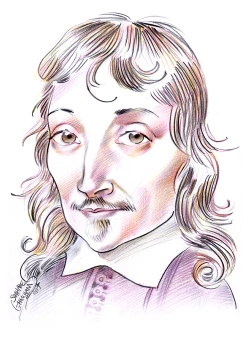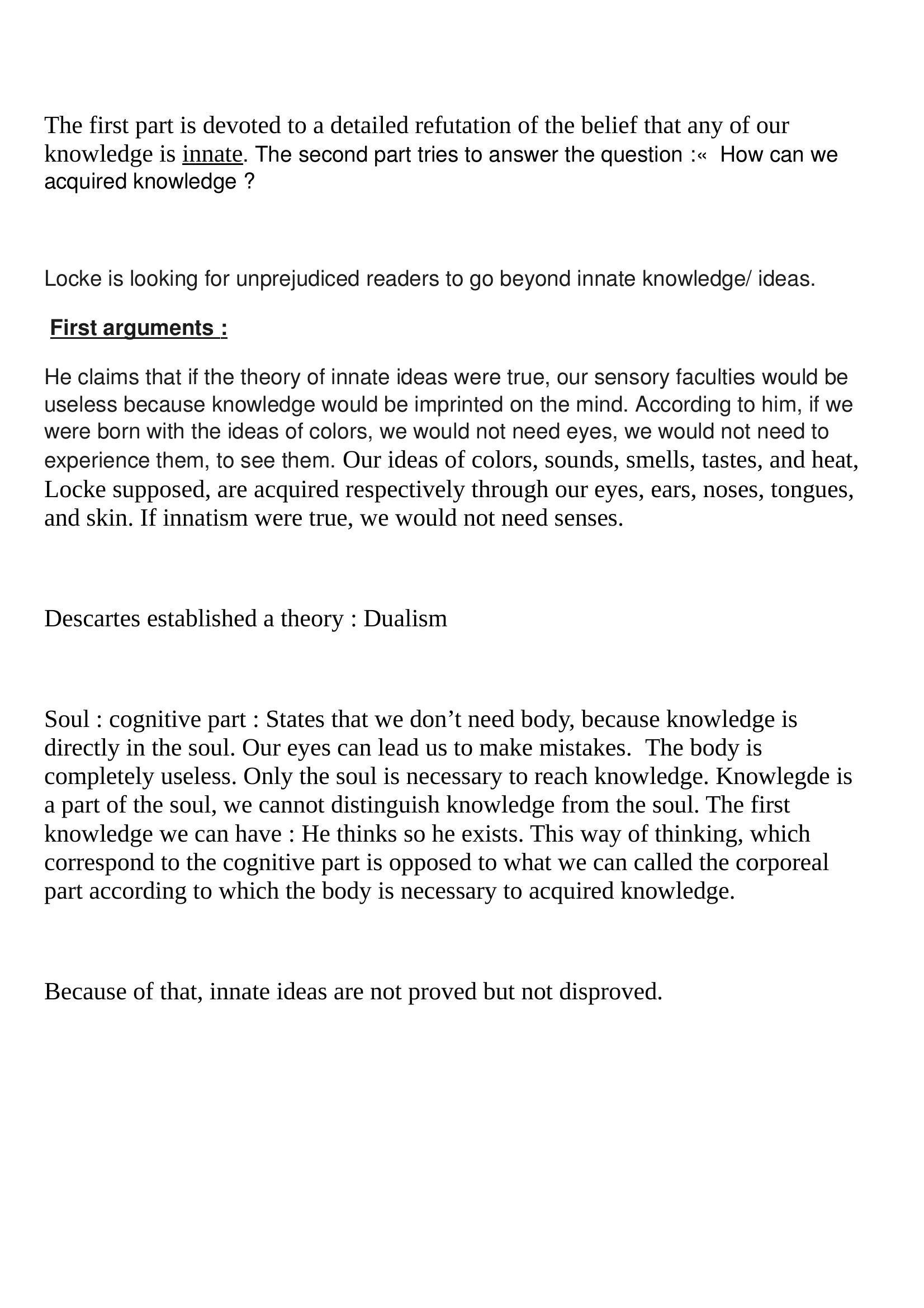Descartes: “I think, therefore I am”
Publié le 04/06/2016

Extrait du document


«
The first part is devoted to a detailed refutation of the belief that any of our
knowledge is innate . The second part tries to answer the question :« How can we
acquired knowledge ?
Locke is looking for unprejudiced readers to go beyond innate knowledge/ ideas.
First arguments :
He claims that if the theory of innate ideas were true, our sensory faculties would be
useless because knowledge would be imprinted on the mind. According to him, if we
were born with the ideas of colors, we would not need eyes, we would not need to
experience them, to see them. Our ideas of colors, sounds, smells, tastes, and heat,
Locke supposed, are acquired respectively through our eyes, ears, noses, tongues,
and skin.
If innatism were true, we would not need senses.
Descartes established a theory : Dualism
Soul : cognitive part : States that we don’t need body, because knowledge is
directly in the soul.
Our eyes can lead us to make mistakes.
The body is
completely useless.
Only the soul is necessary to reach knowledge.
Knowlegde is
a part of the soul, we cannot distinguish knowledge from the soul.
The first
knowledge we can have : He thinks so he exists.
This way of thinking, which
correspond to the cognitive part is opposed to what we can called the corporeal
part according to which the body is necessary to acquired knowledge.
Because of that, innate ideas are not proved but not disproved..
»
↓↓↓ APERÇU DU DOCUMENT ↓↓↓
Liens utiles
- cours philo Descartes contre Freud
- LA LIBERTE SELON DESCARTES
- Analyse de texte première méditation Descartes
- Descartes et l’amour
- Descartes, Discours de la méthode. Pour bien conduire sa raison, et chercher la vérité dans les sciences, 1ère partie (GF, p. 75-76)

































